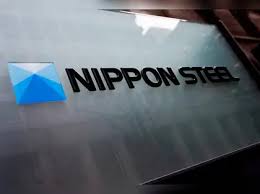Trump to rally in Pennsylvania to endorse Nippon–US steel deal he once vowed to block

Former President Donald Trump has returned to the political spotlight with a notable shift in stance, rallying in Pennsylvania to endorse a major steel industry deal between Nippon Steel of Japan and the iconic U.S. Steel corporation—an agreement he had previously vowed to block. This pivot marks an important moment not only for the steel industry but also for the ongoing battle over foreign investment, American manufacturing, and economic sovereignty.
From Opposition to Endorsement: The Evolution of Trump’s Position
Donald Trump’s political brand has long centered on “America First” policies, especially in manufacturing. Early in the negotiations surrounding Nippon Steel’s $14.9 billion bid to acquire U.S. Steel, Trump was openly critical. His administration had concerns about foreign ownership of a key American industrial asset, and Trump vowed to block the acquisition, emphasizing the protection of American jobs and national security.
However, after months of complex negotiations and strategic adjustments, Trump has now publicly endorsed a revamped deal that promises to keep U.S. Steel largely under American control, while allowing Nippon Steel to take a significant ownership stake. This endorsement came at a rally in Pennsylvania—one of the states most affected by the steel industry and a crucial battleground for future elections.
Trump’s shift reflects a pragmatic approach that balances his protectionist instincts with the realities of globalization and the need for capital investment in American industry. By supporting a deal that includes protections for American workers and national interests, Trump aims to demonstrate his continued commitment to revitalizing domestic manufacturing while embracing partnerships that can strengthen it.
Details of the Revised Nippon–US Steel Deal
The updated agreement between Nippon Steel and U.S. Steel incorporates several key provisions designed to address prior concerns about foreign control and job security:
- American Leadership and Oversight: The deal mandates that U.S. Steel’s executive leadership and board of directors remain predominantly American, ensuring strategic decisions align with U.S. interests.
- Golden Share Veto Power: The U.S. government will hold a “golden share” in the company, giving it veto authority over critical corporate decisions such as plant closures or relocations. This unprecedented step aims to safeguard American industrial assets from unwanted foreign influence.
- Significant Investment and Job Creation: Nippon Steel has pledged $14 billion in investments into U.S. Steel’s plants and operations across multiple states, including Pennsylvania, Indiana, Alabama, Arkansas, and Minnesota. These investments are expected to create tens of thousands of new jobs, boosting local economies historically reliant on steel production.
- Retention of Headquarters: The deal commits to maintaining U.S. Steel’s headquarters in Pittsburgh, preserving the city’s industrial legacy and supporting regional employment.
This comprehensive package was crafted with the explicit goal of balancing foreign investment benefits with American industrial sovereignty—a balance Trump argues is essential for economic growth and national security.
Mixed Reactions Among Stakeholders
The reaction to Trump’s endorsement and the revised deal has been mixed across political and labor lines. Local politicians and business leaders in Pennsylvania have largely welcomed the investment and job creation promises, seeing the deal as a lifeline for steel-dependent communities still recovering from decades of industrial decline.
However, the United Steelworkers (USW) union remains cautious. While acknowledging the potential for new jobs, the union questions whether the protections in the deal will be robust enough to prevent future outsourcing or plant closures. The union also emphasizes the need for enforceable labor standards and long-term commitments to American workers beyond the initial investment promises.
Economists and industry analysts have noted that while foreign investment in American manufacturing can be controversial, it is often a critical source of capital and innovation necessary to compete globally. They argue that the structure of this deal, with government oversight and strategic protections, could become a model for future foreign partnerships in key industries.
Political and Economic Implications
Trump’s rally in Pennsylvania serves several political and economic purposes. For Trump, it reinforces his image as a champion of American industry and jobs—a core appeal among working-class voters in Rust Belt states that have seen economic hardship and political shifts in recent years.
The rally also underscores the evolving nature of U.S. trade and investment policy under the post-Trump administration, which has had to balance protectionist impulses with the practical need to engage in global markets. By endorsing this deal, Trump signals a willingness to adapt his approach while still appealing to his base’s demand for strong protections for American workers.
For Pennsylvania, a state that played a pivotal role in the 2016 election, the deal represents hope for economic revitalization. The steel industry has long been a backbone of the state’s economy, and renewed investment could spur growth in ancillary industries, infrastructure, and community development.
The Broader Context: America’s Industrial Future
This deal between Nippon Steel and U.S. Steel is emblematic of a larger trend in American manufacturing and trade policy—one where outright opposition to foreign investment is giving way to nuanced agreements that aim to protect strategic industries without shutting out global capital.
As countries worldwide compete to dominate critical supply chains, technologies, and materials, the U.S. faces pressure to modernize its industrial base while safeguarding its economic sovereignty. The Nippon–U.S. Steel partnership, backed by Trump’s endorsement, could signal a new chapter where cooperation and control coexist.
Conclusion
Donald Trump’s rally in Pennsylvania to support the Nippon Steel deal, despite his earlier opposition, reflects a pragmatic evolution in his industrial policy. By backing a deal designed to protect American interests and revitalize steel manufacturing, Trump is repositioning himself as a defender of American workers and industry in a globalized economy.
Whether this deal will deliver on its promises remains to be seen. Still, it undeniably highlights the complex balancing act in today’s economic landscape—between embracing foreign investment and protecting national industries critical to economic and security interests.
For Pennsylvanians and the broader American manufacturing sector, the outcome of this deal could have lasting impacts on jobs, communities, and the future of U.S. industry.






